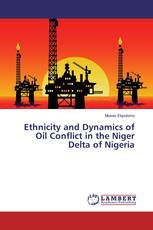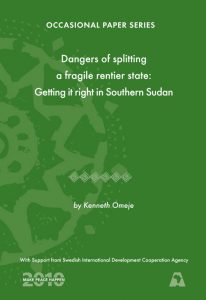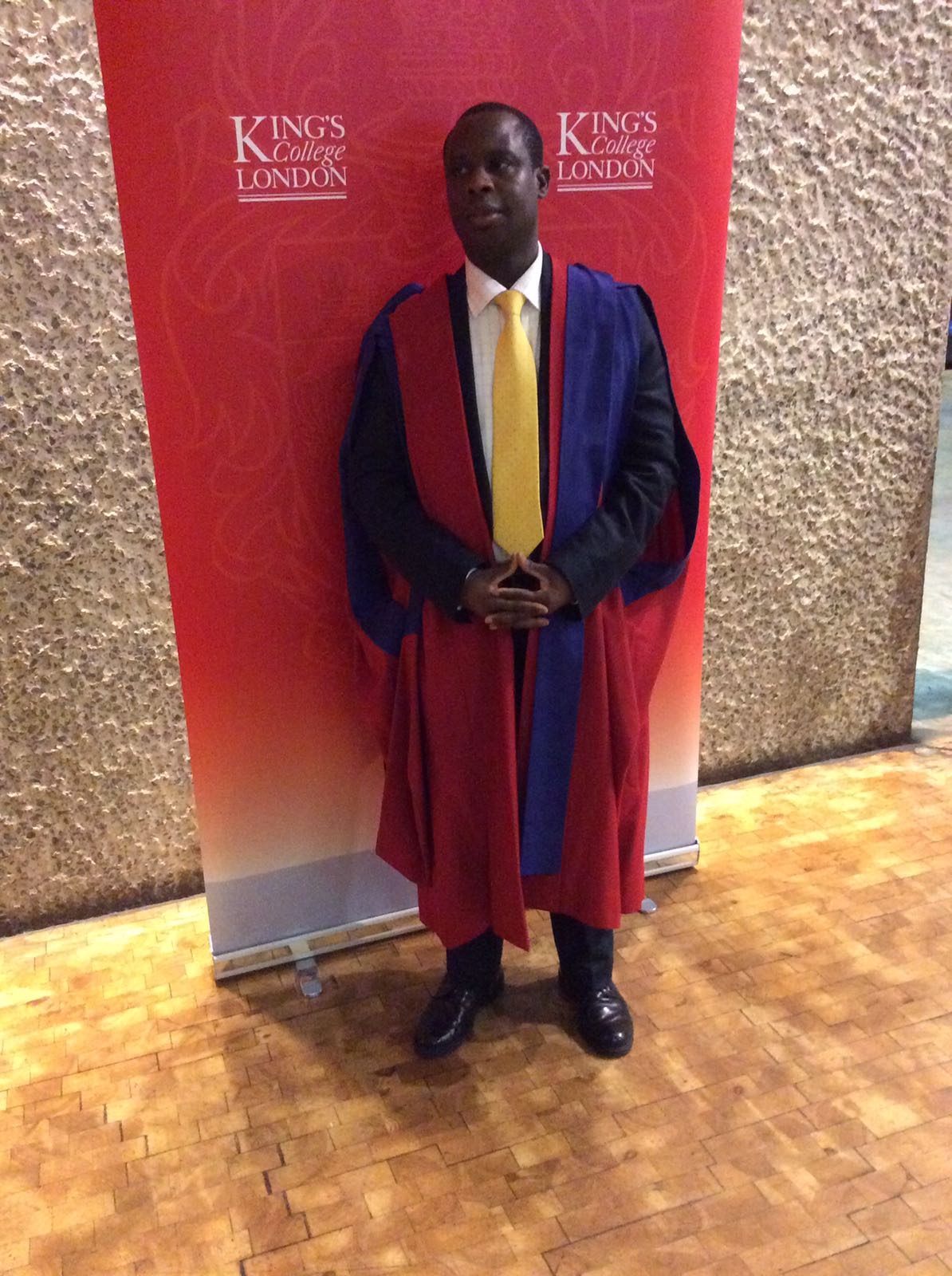By Adagbo Onoja
Let’s start by thanking those who reminded me that I wrongly advertised this second and concluding part of the review for Monday when the first part was being posted on a Saturday. It probably had to do with the Sunday character of yesterday’s weather, courtesy of the rains. The review proceeds on a serious note, starting with the poser hinted by the title. That poser is the possibility of ‘scientifically’ explaining any social phenomenon at all in Nigeria with ethnicity. Can anybody come up to say yes or no without being soiled?
Professor Friedrich Kratochwil of the European University Institute in Florence is fond of mocking academics for what he called hand counting tradition. He is referring to the resort to ‘On the one hand and on the other hand’ stuff that provides escape route for scholars when they confront thorny situations. This must be one of them. Nobody can deny the reality of ethnic politics in Nigeria. As early as 1978, one of its best scholars in Africa had come out with a text on its evolution and dynamics in Nigeria. That is a reference to Professor Okwudiba Nnoli’s Ethnic Politics in Nigeria. At the graduate class in Ibadan, we were told we could not hope to make any headway as students of ethnic violence if we did not start with Nnoli’s text, no matter the currency of literature available to us. At the level of practical politics, it is a common claim or understanding that ethnicity is a far weightier determinant of politics and political alignment in Nigeria than class or any other alternative consciousness. In that context, who would challenge the argument that the dynamics of oil conflict in the Niger Delta is not fundamentally structured by ethnicity? That is to that ethnicity is the common commodity the winners and the losers brought to the field of play in the struggle for control of oil rents. That is on the one hand.
On the other hand would be the contextual problem with that argument. All the evidence point at poverty and unemployment as the definitive markers across Nigeria, suggesting that winners of the struggle for control of oil rents did not go back home to account to any ethnic bonds. That goes contrary to Ekpolomo’s main point that it is ethnic division that worked to systematically drive the pattern of oil resource allocation in such a way that shifts the distribution of oil revenue in favour of cronies from the ethnic base of ascendant ethnic group at the expense of other ethnic groups. What is suggested is that the winners and losers might have been manipulating ethnicity rather than driven by it. This is more so that on the question of ethnic character of sharing of oil blocks, it is the non-Niger Delta ‘ethnicists’ in control of federal power who favoured cronies from their ethnic base who also allocated oil blocks to the Niger Deltans who got it, no matter how few they might have been. As this is not empirically contestable, even if we cite just Malabu oil scandal, isn’t the ethnicity argument further dented and the MetaBosnian poser reified?
 A credit side of the book is thus the many questions it forces out, making the MetaBosnian feature its strongest point, surprisingly. In other words, the ethnicity argument raises not only the question of the explanatory capacity of that analytic in this matter or the methodological question of facticity of facts, it brings in an additional angle to the attempt at understanding the conflict. Hitherto, the class analytic had been the most powerful. Ethnicity has now entered. Who knows if someone would not surface tomorrow with the gender or religious framework?
A credit side of the book is thus the many questions it forces out, making the MetaBosnian feature its strongest point, surprisingly. In other words, the ethnicity argument raises not only the question of the explanatory capacity of that analytic in this matter or the methodological question of facticity of facts, it brings in an additional angle to the attempt at understanding the conflict. Hitherto, the class analytic had been the most powerful. Ethnicity has now entered. Who knows if someone would not surface tomorrow with the gender or religious framework?
The danger though is the way all other frameworks outside of class inherently diminish the imperative of state interventionism as the fastest manner for a uniquely underdeveloped African country to such as Nigeria to industrialise and modernise. Dr Ekpolomo does not explicitly reject state interventionism. Actually, he implied it on pages 17, 256, 321, etc but the implication of his ethnicity argument repudiates that possibility. Where do we find the reconciliation?
Many other questions of this nature can be raised about the leading argument of the book. They do not diminish the book in itself but opens it up for unending interrogation that can make it a better book by the time it has been reviewed here and there. Certainly, there would be more reviews because, as mentioned in the first part, ethnicity is an even more complicated analytic today because of the theoretical and epistemological wranglings going on over evidence, proof, truth and knowledge. Additionally, only a heady scholar will venture into a problematique involving oil, ethnicity, conflict, Niger Delta and Nigeria in one title. This shows in the author’s summary of the standpoint of the most key stakeholders from page 125 to 130. The Federal Government rests its authority on the constitutional provision vesting in it ownership and control of natural resources; the littoral states favour derivation; the oil companies see themselves as being in business and not in charity as far as the development of infrastructure or provision of safety is concerned; local communities want resource control while militants insist that if oil companies would not contribute their own quota to infrastructure development and employment of locals, then they should pack up and go.
 All these present another scenario for two handed analysis. On the one hand, state power is being contested by locals, militants and even oil companies in the notion that once they are doing business under agreed terms, every other thing is charity. On the other hand, the state is the only power with the political, mobilisational, constitutional and military wherewithal to contain the situation. Where does the solution come from or lead to if not anarchy?
All these present another scenario for two handed analysis. On the one hand, state power is being contested by locals, militants and even oil companies in the notion that once they are doing business under agreed terms, every other thing is charity. On the other hand, the state is the only power with the political, mobilisational, constitutional and military wherewithal to contain the situation. Where does the solution come from or lead to if not anarchy?
It is worth recalling in this regard how, long before resource control, restructuring and ethno-regional incantations became dominant in Nigerian politics, the late Aper Aku came to the conference on Four Years of the Presidential System at Ahmadu Bello University, Zaria to say, among other things, that Nigeria’s national question is the ethnic one. He said he was aware of a fascinating intellectual romance with economic determinism on university campuses but asserted his confidence in stumbling on the ethnic origin “of even the ‘gurus’ among our Marxists” before stumbling on their economic consciousness if he were scratch their skin. As early as 1983, he could say that if we paused to ask why there were crisis even within and among socialist countries such as Poland, China and the Soviet Union, we were sure to identify national chauvinism as its source.
Thirty fours years thereafter, the Tiv nationality to which he belongs can be said to be politically comfortable. But is everyone in Tivland, therefore, happy and satisfied even with Benue State, not to talk of Nigeria as a whole? Would resource control solve the problem of conflict in the Niger Delta? What if others discover liquid or solid mineral resources shortly after Niger Delta gets resource control? What if other developments compel Niger Delta to need resources beyond oil?
Certainly, there can be no excusing the failure of the Nigerian State to transform the Niger Delta environment. This did not require any protests before the state should have done it. It is done everywhere else. It seems clear that the moral guilt for that failure has been the unseen source of lack of moral high ground on the part of the Nigerian State in responding to Niger Delta conflict. However, is resource control still the way forward for Niger Delta after the region has made its point, considering cultural, political and strategic implications of resource control as argued for in the book? Intellectuals are said to sing their world into reality.
Barring its proof reading crisis, this should be a successful, even if controversial book. It is understood that the book already received a 5 star rating in terms of data provision for the oil industry when it was presented on June 15th, 2017 at King’s College London. If Dr Ekpolomo could overcome the problem of making the book available in Nigeria, having published it outside the country, then he is off to a good start!



























